- Home
- Harlan Coben
04 - Back Spin Page 12
04 - Back Spin Read online
Page 12
He grabbed the handle and swung the door open. He was sliding in when a tire iron whacked his shoulder.
Pain erupted. He kept rolling, closing the door. A hand grabbed it, offered resistance. Myron used his weight and leaned into the pull.
His window exploded.
Glass tinkled down into his face. Myron kicked his heel through the open window and hit face. The grip on the door released. He already had the key out and in the ignition. He tumed it as the other car window exploded.
Crusty leaned into the car, his eyes blazing with fury.
"Motherfucker, you're gonna die!"
The tire iron was heading toward his face again. Myron blocked it. From behind him, he felt a sharp blow connect with his lower neck. Numbness ensued. Myron shifted into reverse and flew out of the spot, tires squealing.
Crusty tried to leap into the car through the broken window. Myron elbowed him in the nose and Crusty's grip eased. He fell hard to the pavement, but then he jumped right back up. That was the problem with fighting cokeheads. Pain often does not register.
All three men ran for the pickup, but Myron already had too big a lead. The battle was over. For now.
Chapter 16
Myron called in the pickup truck's license plate number, but that was a dead end. The plate had expired four years ago. Crusty must have taken it off a car in a dump or something. Not uncommon. Even petty crooks knew enough not to use their real plates when committing a traceable crime.
He circled back and checked the inside of the building for clues. Bent syringes and broken vials and empty bags of Doritos lay scattered about the cement. There was also an empty garbage can. Myron shook his head. Bad enough being a drug dealer. But a litterbug?
He looked around a bit more. The building was abandoned and half burned out. There was no one inside. And no clues.
Okay, so what did this all mean? Were the three cokeheads the kidnappers? Myron had a hard time picturing it. Cokeheads break into houses. Cokeheads jump people in alleyways. Cokeheads attack with tire irons.
Cokeheads, by and large, do not plan elaborate kidnappings.
But on the other hand, how elaborate was this kidnapping?
The first two times the kidnapper called, he didn't even know how much money to extort. Wasn't that a little odd? Could it be that all this was merely the work of some out-of-their league crusty cokeheads?
Myron got into his car and headed toward Win's house. Win had plenty of vehicles. He'd switch for a car without smashed windows. The residual damage to his body seemed to be clearing up. A bruise or two but nothing broken. None of the blows had landed plush, except the ones to his car windows.
He ran several possibilities through his head and eventually managed to come up with a pretty decent scenario.
Let's say that for some reason Chad Coldren decided to check into the Court Manor Inn. Maybe to spend some time with a girl. Maybe to buy some drugs. Maybe because he enjoyed the friendly service. Whatever. As per the bank surveillance camera, Chad grabbed some dough at a local ATM. Then he checked in for the night. Or the hour. Or whatever.
Once at the Court Manor Inn, something went awry.
Stu Lipwitz's denials notwithstanding, the Court Manor is a sleazy joint patronized by sleazy people. It wouldn't be hard to get in trouble there. Maybe Chad Coldren tried to buy drugs from Crusty. Maybe he witnessed a crime.
Maybe the kid just talked too much and some nasty people realized that he came from money. Whatever. The life orbits of Chad Coldren and the Crusty Nazi's crew dovetailed. The end result was a kidnapping.
It kinda fit.
The key word here: kinda.
On the road toward Merion, Myron helped deflate his own scenario with several well-placed puncture holes.
First of all, the timing. Myron had been convinced that the kidnapping had something to do with Jack's return to playing the U. S. Open at Merion. But in his Crusty-orbit scenario, the nagging timing question had to be written off as mere coincidence. Okay, maybe Myron could live with that. But then how, for example, had the Crusty Nazi stationed at a mall pay phone known that Esme Fong was in the Coldren house? How did the man who climbed out the window and disappeared on Green Acres Road a person Myron had been sure was either Matthew Squires or Chad Coldren fit into all this? Was the well-shielded Matthew Squires in cahoots with the Crusties? Or was it just a coincidence that the window man disappeared down Green Acres Road?
The scenario balloon was going ssssss in a very big way.
By the time Myron got to Merion, Jack Coldren was on the fourteenth hole. His partner for today's round was none other than Tad Crispin. No surprise there. First place and second place were normally the final twosome of the day.
Jack was still playing well, though not spectacularly.
He'd lost only one stroke off his lead, remaining a very comfortable eight strokes ahead of Tad Crispin. Myron trudged toward the fourteenth green. Green that word again. Everything was so dang green. The grass and trees, naturally, but also tents, overhangs, scoreboards, the many television towers and scaffolds everything was lush green to blend in with the picturesque natural surroundings, except, of course, for the sponsors' boards, which drew the eye with all the subtlety of Vegas hotel signs. But hey, the sponsors paid Myron's salary. Be kinda hypocritical to complain. "Myron, sweetheart, get your wiggly ass over here."
Norm Zuckerman beckoned Myron forward with a big wave. Esme Fong stood next to him. "Over here," he said.
"Hey, Norm," Myron said. "Hi, Esme."
"Hi, Myron," Esme said. She was dressed a bit more casual today, but she still clutched at her briefcase like it was a favorite stuffed animal.
Norm threw his arm around Myron's back, draping the hand over the sore shoulder. "Myron, tell me the truth here. The absolute truth. I want the truth, okay?"
"The truth?" .
"Very funny. Just tell me this. Nothing more, just this.
Am I not a fair man? The truth, now. Am I a fair man?"
"Fair," Myron said.
"Very fair, am I right? I am a very fair man."
"Let's not push it, Norm."
Norm put up both hands, palms out. "Fine, be that way. I'm fair. Good enough, I'll take it." He looked over toward Esme Fong. "Keep in mind, Myron is my adversary.
My worst enemy. We're always on opposite sides.
Yet he is willing to admit that I'm a fair man. We straight on that?"
Esme rolled her eyes. "Yes, Norm, but you're preaching to the converted. I already told you that I agreed with you on this "
"Whoa," Norm said, as though reining in a frisky pony. "Just hold the phone a sec, because I want Myron's opinion too. Myron, here's the deal. I bought a golf bag.
Just one. I wanted to test it out. Cost me fifteen grand for the year."
Buying a golf bag meant pretty much what it said.
Norm Zuckerman had bought the rights to advertise on a golf bag. In other words, he put a Zoom logo on it. Most of the golf bags were bought by the big golf companiesPing, Titleist, Golden Bear, that kind of thing. But more and more often, companies that had nothing to do with golf advertised on the bags. McDonald's, for example.
Spring-Air mattresses. Even Pennzoil oil. Pennzoil. Like someone goes to a golf tournament, sees the Pennzoil logo, and buys a can of oil.
"So?" Myron said.
"So, look at it!" Norm pointed at a caddie. "I mean, just look at it!"
"Okay, I'm looking."
"Tell me, Myron, do you see a Zoom logo?"
The caddie held the golf bag. Like on every golf bag, there were towels draped over the top in order to clean off the clubs.
Norm Zuckerman spoke in a first-grade teacher singsong. "You can answer orally, Myron, by uttering the syllable 'no.' Or if that's too taxing on your limited vocabulary, you can merely shake your head from side to side like this." Norm demonstrated.
"It's under the towel," Myron said.
Norm dramatically put his hand to his ear. "Pardon?"
"The logo is under the towel."
"No shit it's under the towel!" Norm railed. Spectators turned and glared at the crazy man with the long hair and heavy beard. "What good does that do me, huh?
When I film an advertisement for TV, what good would it do me if they stick a towel in front of the camera? When I
pay all those schmucks a zillion dollars to wear my sneakers, what good would it do me if they wrapped their feet in towels? If every billboard I had was covered with a great big towel "
"I get the picture, Norm."
"Good. I'm not paying fifteen grand for some idiot caddie to cover my logo. So I go over to the idiot caddie and I kindly tell him to move the towel away from my logo and the son of a bitch gives me this look. This look, Myron. Like I'm some brown stain he couldn't rinse out of the toilet. Like I'm this little ghetto Jew who's gonna take his goy crap."
Myron looked over at Esme. Esme smiled and shrugged. .
"Nice talking to you, Norm," Myron said.
"What? You don't think I'm right?"
"I see your point."
"So if it was your client, what would you do?"
"Make sure the caddie kept the logo in plain view."
"Exactamundo." He swung his arm back around Myron's shoulder and lowered his head conspiratorially. "So what's going on with you and golf; Myron?" he whispered.
"What do you mean?"
"You're not a golfer. You don't have any golf clients.
All of a sudden I see you with my very own eyes closing in on Tad Crispin and now I hear you're hanging out with the Coldrens."
"Who told you that?"
"Word gets around. I'm a 'man with tremendous sources. So what's the deal? Why the sudden interest in golf?"
"I'm a sports agent, Norm. I try to represent athletes."
"Golfers are athletes. Sort of"
"Okay, but what's up with the Coldrens?"
"What do you mean?"
"Look, Jack and Linda are lovely people. Connected, if you know what I mean."
"I don't know what you mean."
"LBA represents Linda Coldren. Nobody leaves LBA.
You know that. 'I`hey're too big. Jack, well, Jack hasn't done anything in so long, he hasn't even bothered with an agent. So what I'm trying to figure out is, why are the Coldrens suddenly hot to trot with you?"
"Why do you want to figure that out?"
Norm put his hand on his chest. "Why?"
"Yeah, why would you care?"
"Why?" Norm repeated, incredulous now. "I'll tell you why. Because of you, Myron. I love you, you know that. We're brothers. Tribe members. I want nothing but the best for you. Hand to God, I mean that. You ever need a recommendation, I'll give it to you, you know that."
"Uh-huh." Myron was less than convinced. "So what's the problem?"
Norm threw up both hands. "Who said there's a problem? Did I say there was a problem? Did I even use the word problem? I'm just curious, that's all. It's part of my nature. I'm a curious guy. A modem-day yenta. I ask a lot of questions. I stick my nose in where it doesn't belong.
It's part of my makeup."
"Uh-huh," Myron said again. He looked over at Esme Fong, who was now comfortably out of earshot. She shrugged at him. Working for Norm Zuckerman probably meant you did a lot of slnugging. But that was part of Norm's technique, his own version of good-cop, bad-cop.
He came across as erratic, if not totally irrational, while his assistant always young, bright, attractive was the calming influence you grabbed on to like a life preserver.
Norm elbowed him and nodded toward Esme. "She's a looker, huh? Especially for a broad from Yale. You ever see what that school matriculates? No wonder they're known as the BuIldogs."
"You're so progressive, Norm."
"Ah, screw progressive. I'm an old man, Myron. I'm allowed to be insensitive. On an old man, insensitive is cute. A cute curmudgeon, that's what they call it. By the way, I think Esme is only half."
"Half?"
"Chinese," Norm said. "Or Japanese. Or whatever. I
think she's half white too. What do you think?"
"Good-bye, Norm."
"Fine, be that way. See if I care. So tell me, Myron, how did you hook up with the Coldrens? Win introduce you?"
"Good-bye, Norm."
Myron walked off a bit, stopping for a moment to watch a golfer hit a drive. He tried to follow the ball's route. No go. He lost sight of it almost immediately. This shouldn't be a surprise really it is, after all, a tiny white sphere traveling at a rate of over one hundred miles per hour for a distance of several hundred yards except that Myron was the only person in attendance who couldn't achieve this ophthalmic feat of hawklike proportions.
Golfers. Most of them can't read an exit sign on an interstate, but they can follow the trajectory of a golf ball through several solar systems.
No question about it. Golf is a weird sport.
The course was packed with silent fans, though fans didn't exactly feel like the right word to Myron. Parishicners was a hell of a lot closer. There was a constant reverie on a golf course, a hushed, wide-eyed respect.
Every time the ball was hit, the crowd release was nearly orgasmic. People cried sweet bliss and urged the ball with the ardor of Price Is Right contestants: Run! Sit! Bite!
Grab! Grow teeth! Roll! Hurry! Get down! Get up!
almost like an aggressive mambo instructor. They lamented over a snap hook and a wicked slice and a babied putt and goofy greens and soft greens and waxed greens and the rub of the green and the pursuit of a snowman and being stymied and when the ball traveled off the fairway and on the fringe and in the rough and deep lies and rough lies and bad lies and good lies. They showed admiration when a player got all of that one or ripped a drive or banged it home and gave dirty looks when someone loudly suggested that a certain tee shot made a certain player "da man." They accused a putter who did not reach the hole of hitting the ball "with your purse, Alice."
Players were constantly playing shots that were "unplayable. "
Myron shook his head. All sports have their own lexicons, but speaking golfese was tantamount to mastering Swahili. It was like rich people's rap.
But on a day like today the sun shining, the blue sky unblemished, the summer air smelling like a lover's hair Myron felt closer to the chalice of golf He could imagine the course tree of spectators, the peace and tranquillity, the same aura that drew Buddhist monks to mountaintop retreats, the double cut grass so rich and green that God Himself would want to run barefoot. This did not mean Myron got it he was still a nonbeliever of heretic proportions- but for a brief moment he could at least envision what it was about this game that ensnared and swallowed so many whole.
When he reached the fourteenth green, Jack Coldren was lining up for a fifteen-foot putt. Diane Hoflinan took the pin out of the hole. At almost every course in the world, the "pin" had a Hag on the top. But that would just not do at Merion. Instead, the pole was topped with a wicker basket. No one seemed to know why. Win came up with this story about how the old Scots who invented golf used to carry their lunch in baskets on sticks, which could then double as hole markers, but Myron smelled the pungent odor of lore in Win's rationale rather than fact.
Either way, Merion's members made a big fuss over these wicker baskets on the end of a big stick. Golfers.
Myron tried to move in closer to Jack Coldren, looking for Win's "eye of the tiger." Despite his protestations, Myron knew very well what Win had meant the previous night, the intangibles that separated raw talent from on-field greatness. Desire. Heart. Perseverance. Win spoke about these things as though they were evil. They were not. Quite the opposite, in fact. Win, of all people, should know better. To paraphrase and completely abuse a famous political quote: Extremism in the pursuit of excellence is no vice.
Jack Coldren's expression was smooth and unworried and distant. Only one explanation for that: the zone. Jack had managed to squeeze his way into the hallowed zone, that tranquil room
in which no crowd or big payday or famous course or next hole or knee-bending pressure or hostile opponent or successful wife or kidnapped son may reside. Jack's zone was a small place, comprising only his club, a small dimpled ball, and a hole. All else faded away now like the dream sequence in a movie.
This, Myron knew, was Jack Coldren stripped to his purest state. He was a golfer. A man who wanted to win.
Needed to. Myron understood. He had been there his zone consisting of a large orange ball and a metallic cylinder and a part of him would always be embeshed in that world. It was a fine place to be in many ways, the best place to be. Win was wrong. Winning was not a worthless goal. It was noble. Jack had taken life's hits. He had striven and battled. He had been battered and bloodied.
Yet here he stood, head high, on the road to redemption.
How many people are awarded this opportunity?
How many people truly get the chance to feel this vibrant, to reside for even a short time on such a plateau, to have their hearts and dreams stirred with such unquenchable inner passion?
Jack Coldren stroked the putt. Myron found himself watching the ball slowly arc toward the hole, lost in that vicarious rush that so fiercely drew spectators to sports.
He held his breath and felt something like a tear well up in his eye when the ball dropped in. A birdie. Diane Hoffman made a iist and pumped it. The lead was back up to nine strokes.
Jack looked up at the applauding galley. He acknowledged them with a tip of his hat, but he saw nothing. Still in the zone. Fighting to stay there. For a moment, his eyes locked on Myron's. Myron nodded back, not wanting to nudge him back to reality. Stay in that zone, Myron thought. In that zone, a man can win a tournament. In that zone, a son does not purposely sabotage a father's lifelong dream.
Myron walked past the many portable toilets they'd been provided by a company with the semiaccurate name Royal Flush and headed toward Corporate Row. Golf matches had an unprecedented hierarchy for ticket holders.
True, at most sporting arenas there was a grading of one sort or another some had better seats, obviously, while some had access to skyboxes or even courtside seats. But in those cases, you handed a ticket to an usher or ticket collector and took your place. In golf, you displayed your entrance pass all day. The general-admission folk (read: serfs) usually had a sticker plastered on their shirt, not unlike, say, a scarlet letter. Others wore a plastic card that dangled from a metal chain wrapped around their neck. Sponsors (read: feudal lords) wore either red, silver, or gold cards, depending on how much money they spent. There were also different passes for players' family and friends, Merion club members, Merion club officers, even steady sports agents. And the different cards gave you different access to different places. For example, you had to have a colored card to enter Corporate Row. Or you needed a gold card if you wanted to enter one of those exclusive tents the ones strategically perched on hills like generals' quarters in an old war movie.

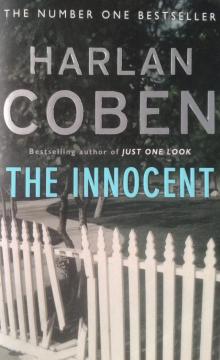 The Innocent
The Innocent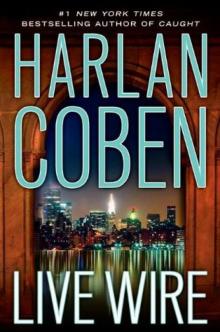 Live Wire
Live Wire Play Dead
Play Dead Drop Shot
Drop Shot Seconds Away
Seconds Away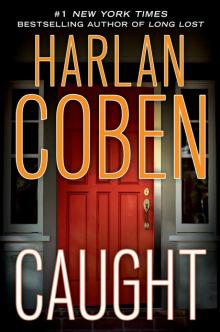 Caught
Caught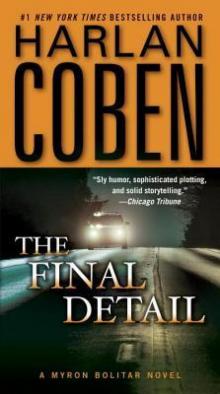 The Final Detail
The Final Detail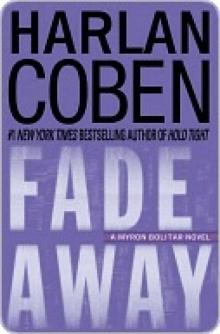 Fade Away
Fade Away Home
Home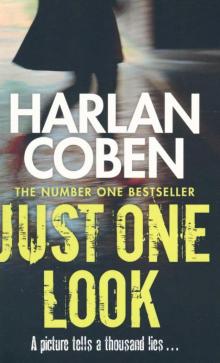 Just One Look
Just One Look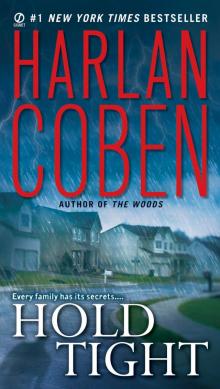 Hold Tight
Hold Tight Fool Me Once
Fool Me Once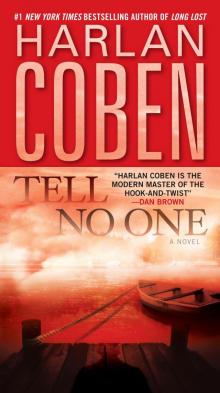 Tell No One
Tell No One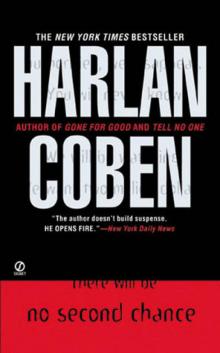 No Second Chance
No Second Chance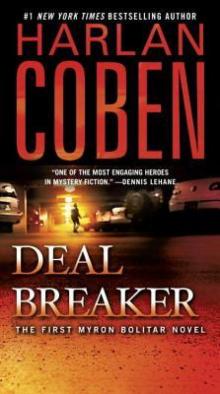 Deal Breaker
Deal Breaker Long Lost
Long Lost One False Move
One False Move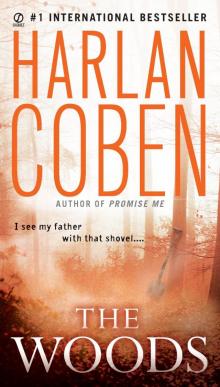 The Woods
The Woods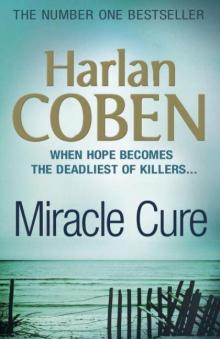 Miracle Cure
Miracle Cure Found
Found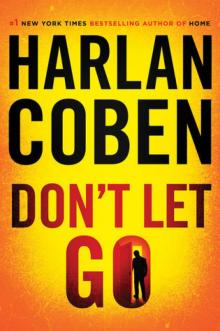 Don't Let Go
Don't Let Go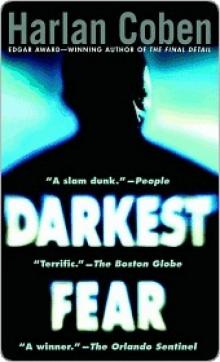 Darkest Fear
Darkest Fear The Stranger
The Stranger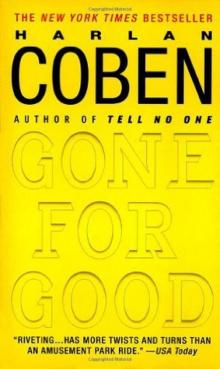 Gone for Good
Gone for Good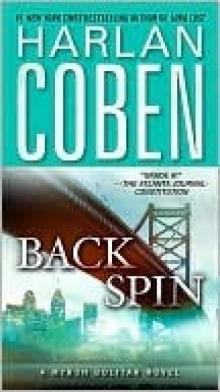 Back Spin
Back Spin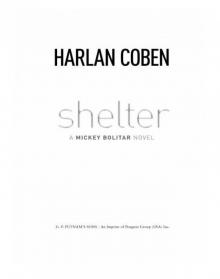 Shelter
Shelter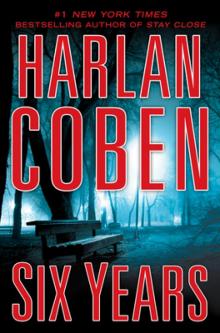 Six Years
Six Years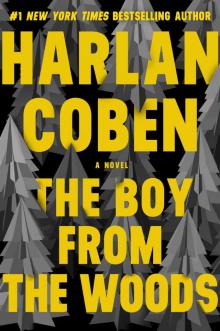 The Boy from the Woods
The Boy from the Woods Missing You
Missing You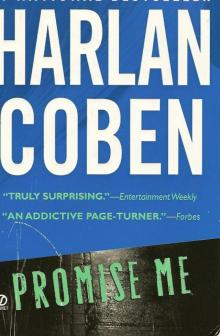 Promise Me mb-8
Promise Me mb-8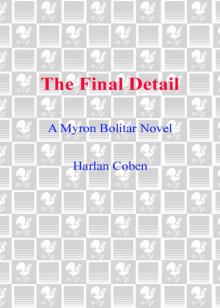 The Final Detail: A Myron Bolitar Novel
The Final Detail: A Myron Bolitar Novel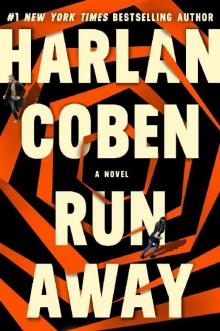 Run Away
Run Away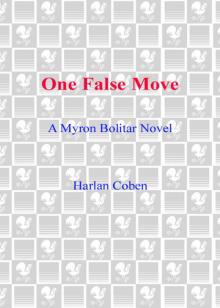 One False Move: A Myron Bolitar Novel
One False Move: A Myron Bolitar Novel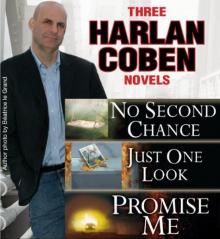 Three Harlan Coben Novels
Three Harlan Coben Novels the Woods (2007)
the Woods (2007) Tell No One (2001)
Tell No One (2001) the Innocent (2005)
the Innocent (2005)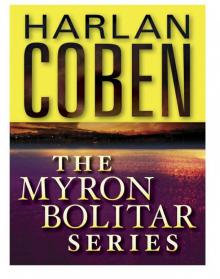 The Myron Bolitar Series 7-Book Bundle
The Myron Bolitar Series 7-Book Bundle Gone for Good (2002)
Gone for Good (2002) Caught (2010)
Caught (2010) Hold Tight (2008)
Hold Tight (2008)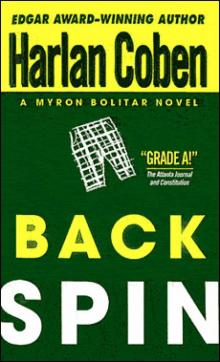 04 - Back Spin
04 - Back Spin Miracle Cure (1991)
Miracle Cure (1991)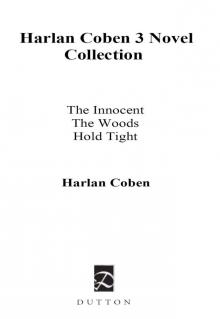 Harlan Coben 3 Novel Collection
Harlan Coben 3 Novel Collection Just One Look (2004)
Just One Look (2004)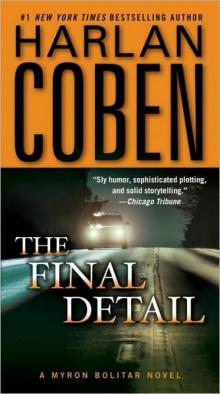 The Final Detail mb-6
The Final Detail mb-6 Play Dead (2010)
Play Dead (2010)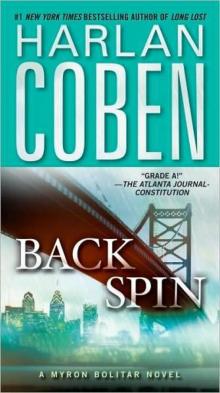 Back Spin mb-4
Back Spin mb-4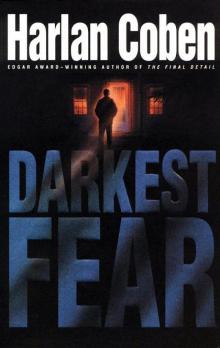 Darkest Fear mb-7
Darkest Fear mb-7